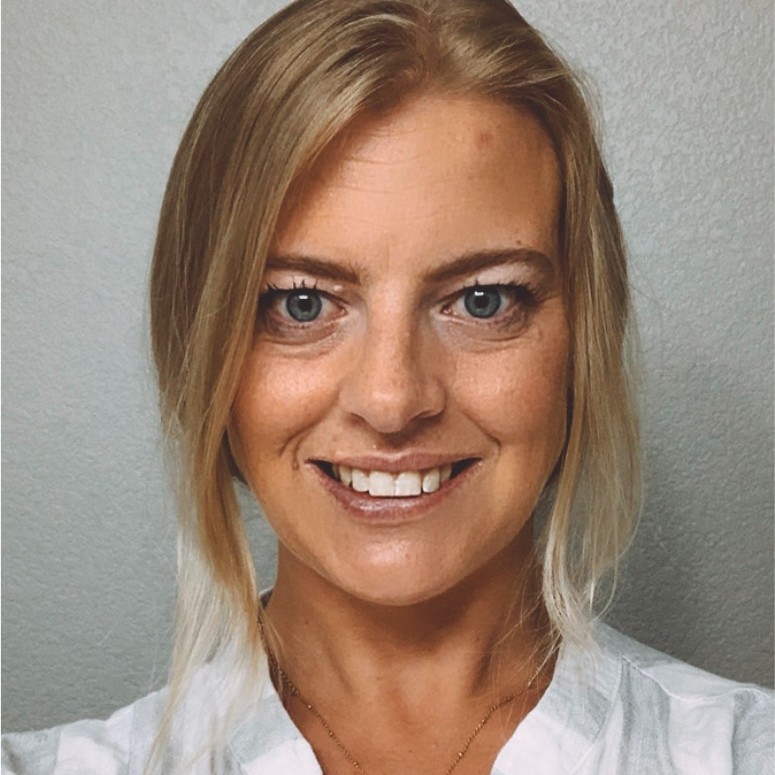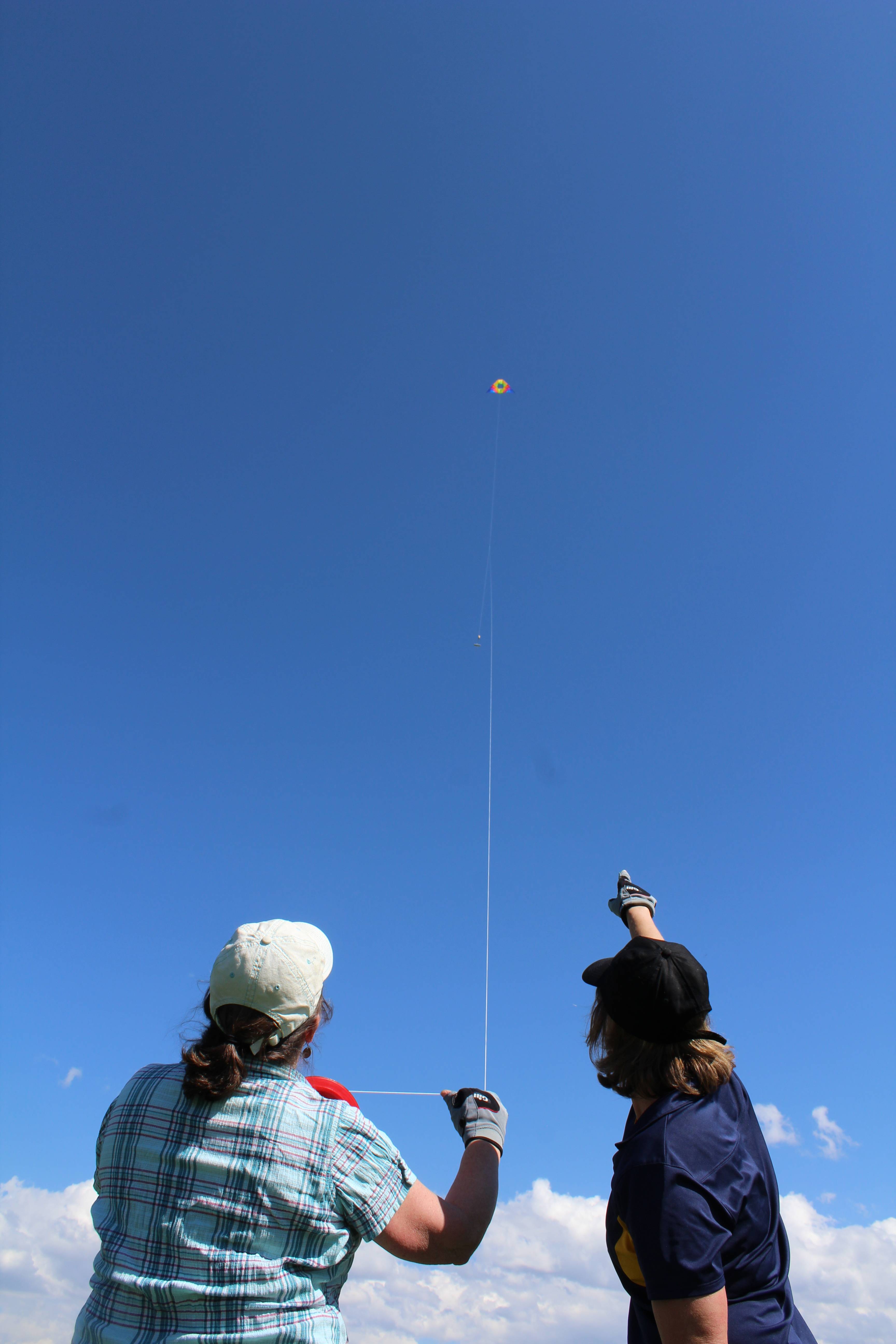Educator Professional Development and Resources
Educator Professional Development provides support to K-12 STEM educators to fulfill
the goal of offering high quality STEM education to Montana students. OPI Renewal
Units are available for many of the events.
Questions? Contact us at [email protected] or (406) 994-7476
Ongoing and self-paced learning resources
Land Use Explorers - Activitites for youth
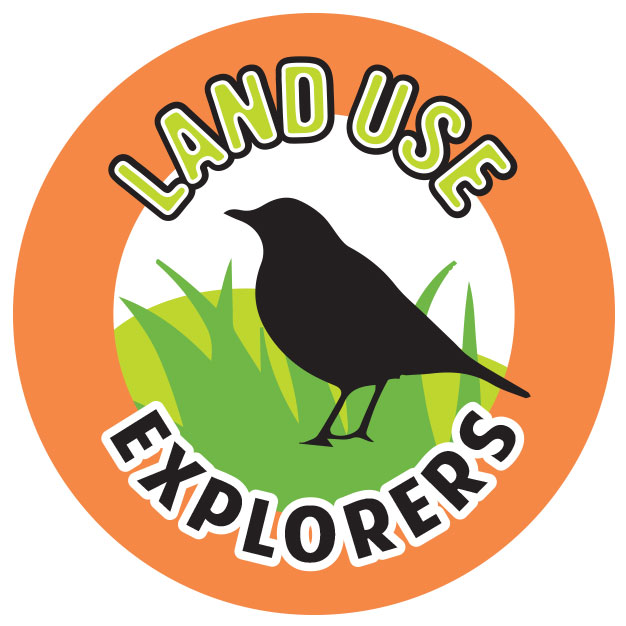 Land Use Explorers is a series of lessons and activities that help students, teachers, and citizens
of all ages to better understand and think critically about what we use our lands
for and what we value most about them.
Land Use Explorers is a series of lessons and activities that help students, teachers, and citizens
of all ages to better understand and think critically about what we use our lands
for and what we value most about them.
All activities, list of materials and a recording on how to use the program are available here.
The social, economic, and environmental benefits provided by our lands are innumerable--from food and energy production, to watersheds and wildlife habitats. But there are also trade-offs associated with any land use.
Land Use Explorers focuses on topics that are key to understanding these benefits and trade-offs: Land Use, Energy, Climate Change, Food Systems, Water, Agriculture and Soil, Biodiversity
Sensing for Science · Self-paced Training Program
 Are you interested in Arduino coding and sensors? We have a free training program
for Montana teachers. Learn how you can get a FREE kit for yourself! Visit Sensing for Science.
Are you interested in Arduino coding and sensors? We have a free training program
for Montana teachers. Learn how you can get a FREE kit for yourself! Visit Sensing for Science.
This program is supported by Montana NSF EPSCoR.
Datasets for Teachers · Self-paced Modules
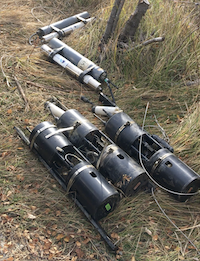 Datasets for Teachers: Supercharge Your Classroom with Montana Field Science Data
is a free, self-paced course for educators that consists of five modules. Through
these modules, educators will learn to incorporate datasets from authentic Montana
research projects into their own classroom. Visit Datasets for Teachers for more information. This course was sponsored by Montana NSF EPSCoR and was originally taught by Montana Partnership with Regions for Excellence in STEM (MPRES) educators Chris Pavlovich and Bill Stockton through the Montana Office of Public Instruction's (OPI) Teacher Learning Hub.
Datasets for Teachers: Supercharge Your Classroom with Montana Field Science Data
is a free, self-paced course for educators that consists of five modules. Through
these modules, educators will learn to incorporate datasets from authentic Montana
research projects into their own classroom. Visit Datasets for Teachers for more information. This course was sponsored by Montana NSF EPSCoR and was originally taught by Montana Partnership with Regions for Excellence in STEM (MPRES) educators Chris Pavlovich and Bill Stockton through the Montana Office of Public Instruction's (OPI) Teacher Learning Hub.
Partner program: Montana PBS Films
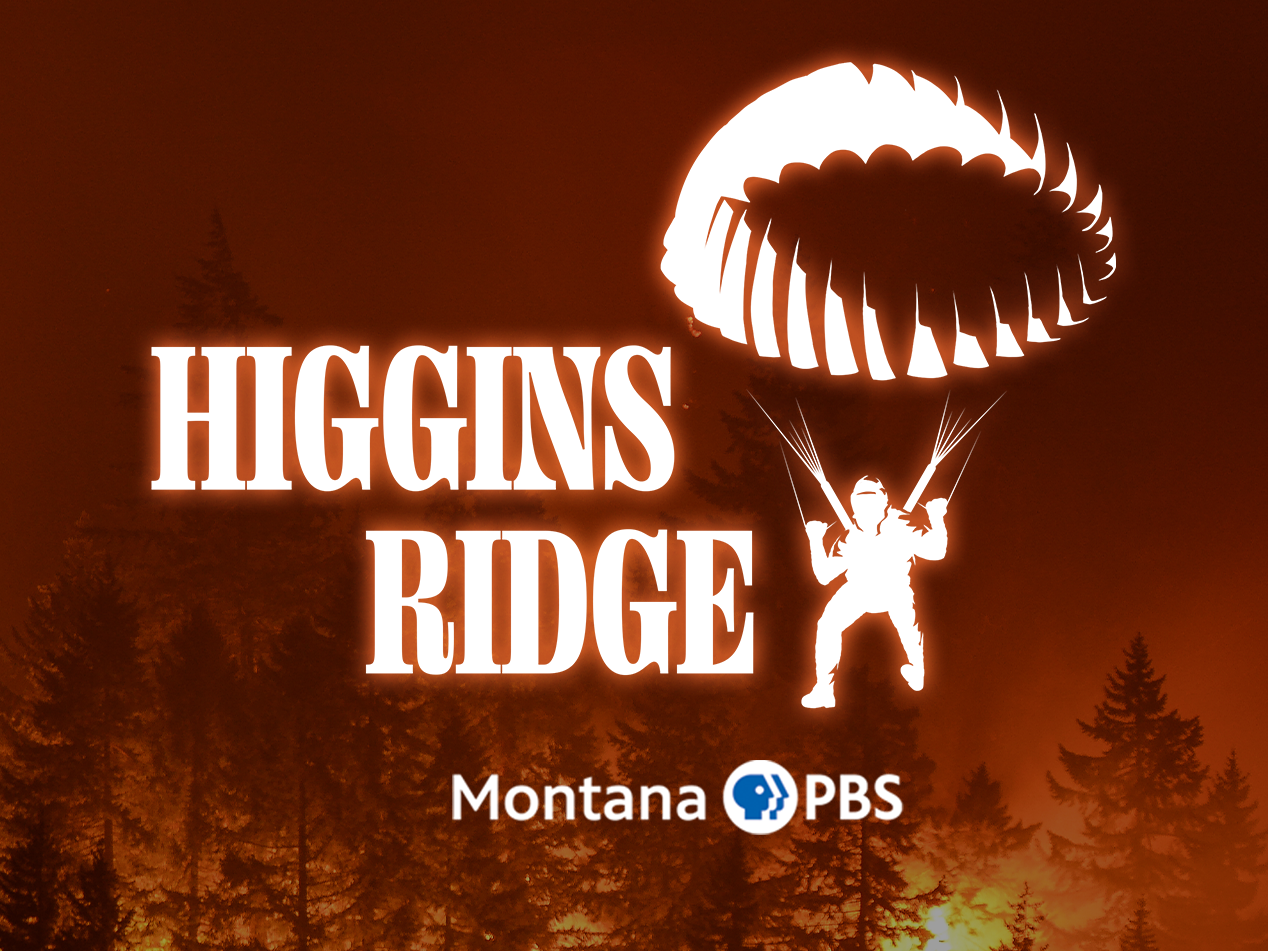 Watch Montana PBS and PBS films Explore our menu of film options and pick the films
that would help you build your content knowledge and inspire you to create engaging
lessons for students. After watching the film you can complete a reflection activity
for Montana PBS sharing your thoughts about the film and how you could use it with
students. We have a catalog of films covering content areas such as Social Studies,
Math, Science, English Language Arts, and IEFA. Learn more
Watch Montana PBS and PBS films Explore our menu of film options and pick the films
that would help you build your content knowledge and inspire you to create engaging
lessons for students. After watching the film you can complete a reflection activity
for Montana PBS sharing your thoughts about the film and how you could use it with
students. We have a catalog of films covering content areas such as Social Studies,
Math, Science, English Language Arts, and IEFA. Learn more
Contracted training
Leap Into Science (STEM and Literacy for youth aged 3-10 and their caregivers)
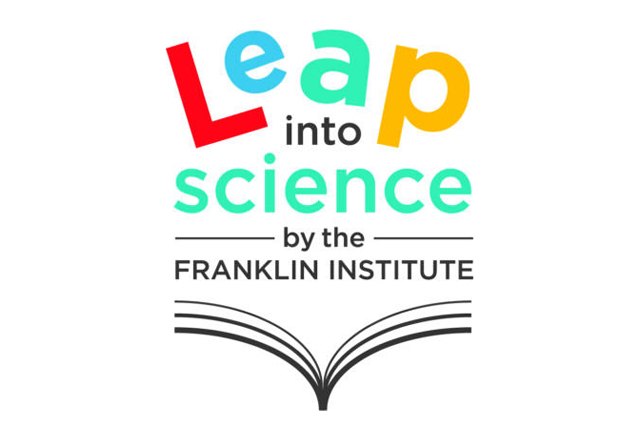 Leap into Science is a nationwide program developed by The Franklin Institute. It is funded by the
National Science Foundation, and supported by The National Girls Collaborative Project.
In Montana, the program is led by the Science Math Resource Center, spectrUM Discovery
Area, Montana Afterschool Alliance and Missoula Public Library.
Leap into Science is a nationwide program developed by The Franklin Institute. It is funded by the
National Science Foundation, and supported by The National Girls Collaborative Project.
In Montana, the program is led by the Science Math Resource Center, spectrUM Discovery
Area, Montana Afterschool Alliance and Missoula Public Library.
This high-quality program integrates open-ended science activities with children’s books, designed for children ages 3-10 and their families.
Educators who join the Leap Into Science cohort receive:
- Training on a high-quality science and literacy curriculum and facilitation strategies
- Ongoing support as a member of the Leap Into Science national network
- Access to the national Leap Into Science leadership team and online resources, plus quarterly support calls with other Montana educators
- Web-based training on new curriculu themes in subsequent years
For information, contact Suzi Taylor at [email protected]
Past MSU Workshops
Research in Action
The MSU Research in Action! Workshop Series connects K-12 educators with Montana State
University researchers. Attendees learn about current MSU research projects and hear
personal STEM stories from the researchers. Educators will be equipped to bring back
to their students authentic stories from real people about relevant STEM projects.
Recordings of past workshops are available below.
For more information, email Dr. Jeannie Chipps with SMRC at [email protected] or call the Science Math Resource Center at (406) 994-7476.
Rescheduled TBD · Ghazal Vahidi
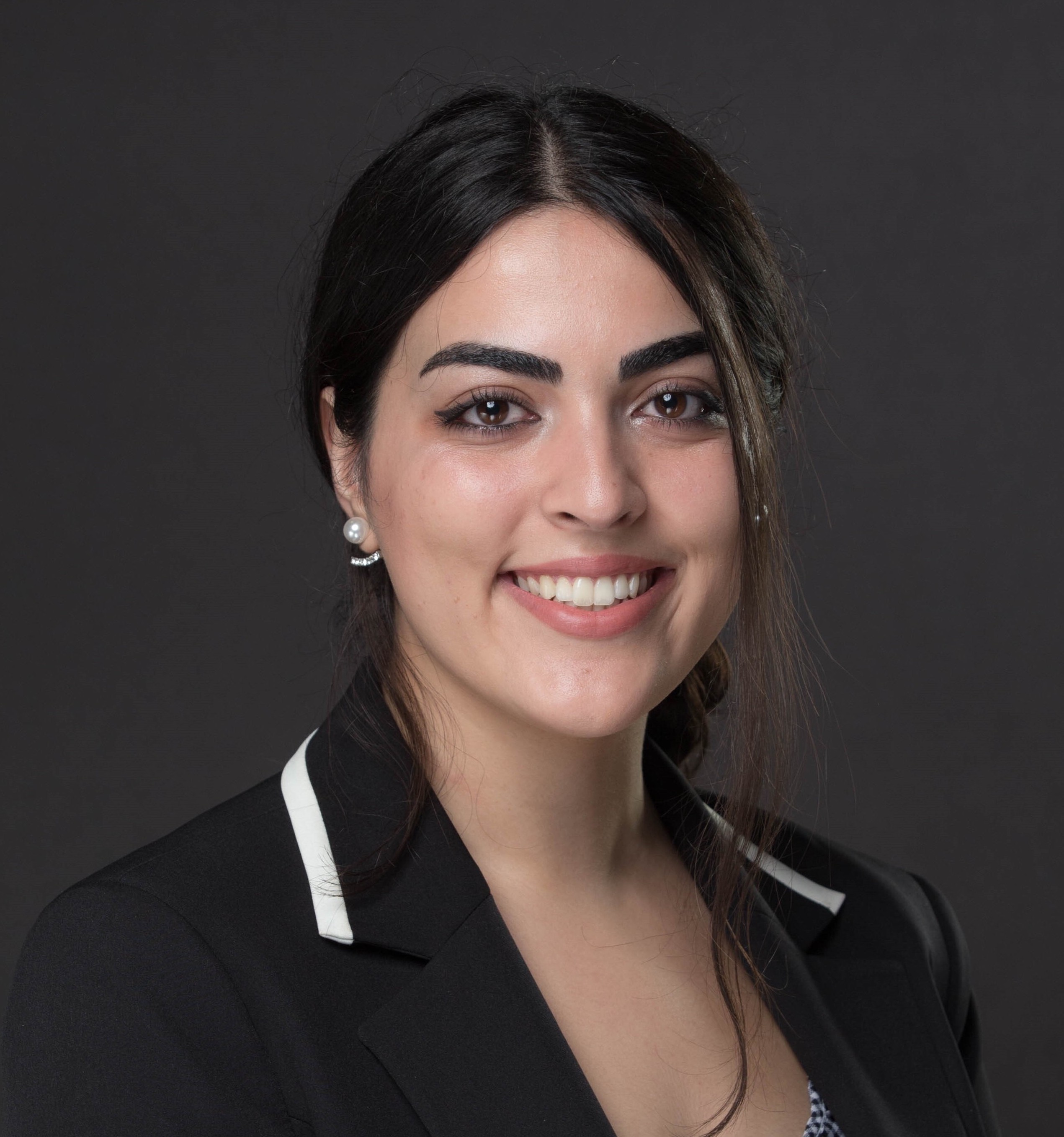 MSU Research in Action! continues with Ghazal Vahidi, a PhD candidate who studies
bone density in the MSU Norm Asjbornson College of Engineering. Vahidi is a researcher in Dr. ChelseaHeveran'sBiomechanics & Bio-inspired materials lab and a PhD candidate in Mechanical and Industrial
Engineering. Her research interests include bone quality, bone fractures resistance
and aging, and osteocyte perilacunar remodeling.
MSU Research in Action! continues with Ghazal Vahidi, a PhD candidate who studies
bone density in the MSU Norm Asjbornson College of Engineering. Vahidi is a researcher in Dr. ChelseaHeveran'sBiomechanics & Bio-inspired materials lab and a PhD candidate in Mechanical and Industrial
Engineering. Her research interests include bone quality, bone fractures resistance
and aging, and osteocyte perilacunar remodeling.
In addition to Vahidi’s research, teachers will hear stories of STEM identity, a sense-of-belonging,
and how these experiences translate to the classroom to inspire diverse andequitableopportunities for future STEM students.
October 4, 2023 · Sarah Morris
Dr. Sarah Morris, Assistant Professor in Mechanical & Industrial Engineering at Montana
State University,specializes in experimental fluid dynamics and runs the Experimental Fluids Research
Laboratory. Her research interests include aerodynamics, biological flows, fluid-structure
interactions, and flow visualization. She received her Ph.D. from Cornell University
and her B.Eng. and B.A. from Monash University, Australia.
Dr. Morris shares information about her MSU research as well as stories about her
STEM Journey. Join us!
View the Workshop with Dr. Morris HERE · Coming Soon!
March 2023 · Mathematician Bree Cummins
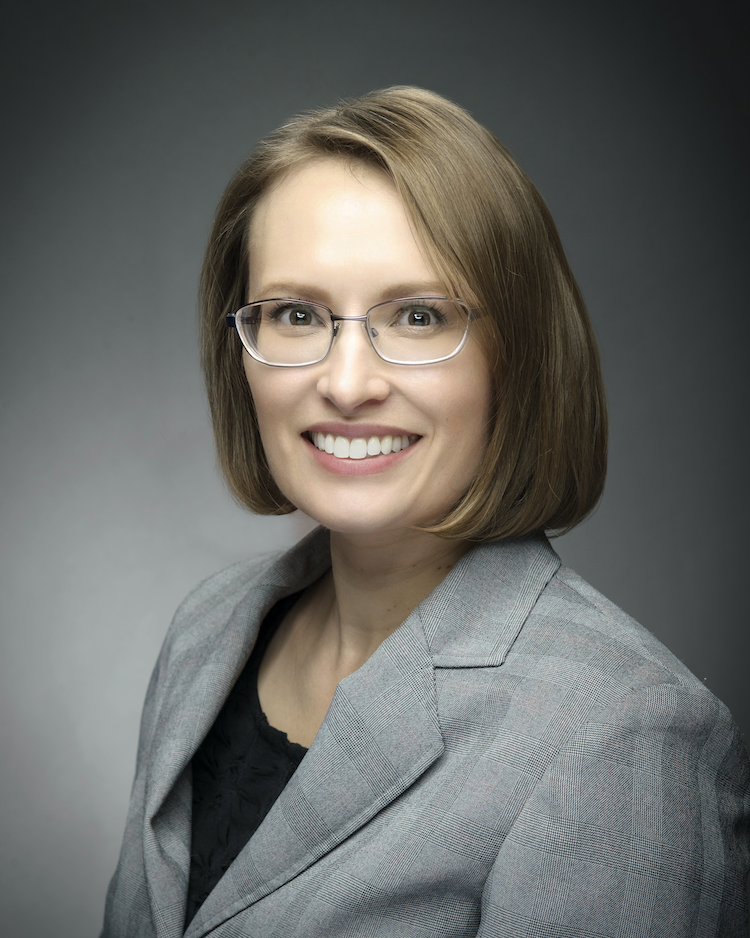 Dr. Bree Cummins is an Assistant Research Professor in the Department of Mathematical
Sciences at Montana State University, where she conducts research in several areas
of mathematical biology. She grew up in Boise, ID and attended Boise State University
where she double majored in Biology and Mathematics.
Dr. Bree Cummins is an Assistant Research Professor in the Department of Mathematical
Sciences at Montana State University, where she conducts research in several areas
of mathematical biology. She grew up in Boise, ID and attended Boise State University
where she double majored in Biology and Mathematics.
In 2009, she received her PhD in Mathematics from Montana State University, where
her thesis focused on modeling the interaction between air flow and the cricket sensory
system that enables fast escape response. She then worked as a postdoc at Tulane University
in New Orleans on a project modeling mosquito motion in response to wind-blown plumes
of carbon dioxide.
Returning to Montana to be near her husband’s family, she became a postdoc at Montana
State University, and later an Assistant Research Professor. Her current research
interests include modeling the genetic control of cellular processes, modeling social
processes related to disease spread, and most recently, using artificial intelligence
to understand complex biological systems.
December 2022 · Esther Stopps
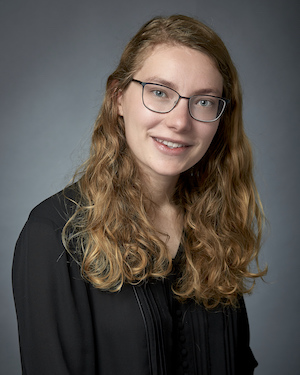 Meet Esther Stopps, a doctoral candidate in Chemical Engineering. She is originally
from Idaho Falls, Idaho, and graduated from Montana State with B.S. degrees in Chemical
Engineering and Biological Engineering.
Meet Esther Stopps, a doctoral candidate in Chemical Engineering. She is originally
from Idaho Falls, Idaho, and graduated from Montana State with B.S. degrees in Chemical
Engineering and Biological Engineering.
Under the mentorship of Dr. Stephanie McCalla,Esther is researching how to make more definitive and accurate diagnostic tests for
disease-related DNA and RNA molecules.She measuresthe reaction speed for different engineered DNA binding reactions. Information gained
is used to design amplification reactions with a larger, conclusive burst of signal
in the presence of a disease target.
Esther is specifically detecting small RNA molecules associated with Alzheimer's disease,
but her research is broadly applicable to many types ofdisease diagnostics, such as cancer screenings and viral infection monitoring.
View the Workshop with Esther Stopps HERE
November 2022 · Cailin Casey
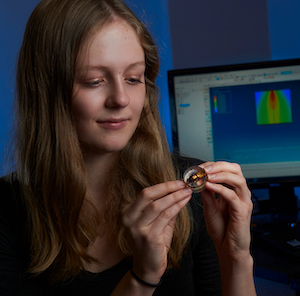 Join Cailin Casey, a doctoral student in Mechanical and Industrial Engineering, who uses high-tech methods to seehow flying insects could inform advances in engineering. Casey isa third-year PhD student who leverages her cross disciplinary studies to understand
the role of the thorax cuticle in insect flight by examining its microscale properties
and performing macroscale mechanical testing.
Join Cailin Casey, a doctoral student in Mechanical and Industrial Engineering, who uses high-tech methods to seehow flying insects could inform advances in engineering. Casey isa third-year PhD student who leverages her cross disciplinary studies to understand
the role of the thorax cuticle in insect flight by examining its microscale properties
and performing macroscale mechanical testing.
She graduated with a B.A in biology and Spanish and a minor in mathematics from Gettysburg
College.
View the Workshop with Cailin Casey HERE
September 2022 · Dr. Emily Dieter
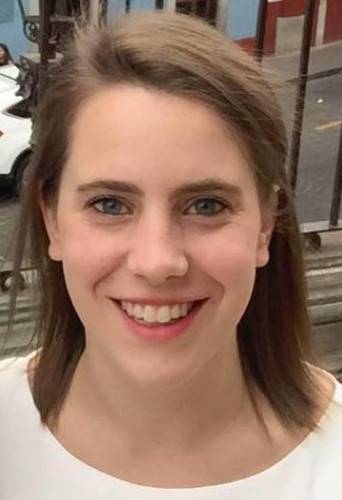 Dr. Emily Dieter obtained herBachelor’sof Science in Biochemistry at Saint Michael’s College in Colchester, VT. She then
completed her graduate work in Biological Chemistry at the University of Washington,
under the guidance of Dr. Dustin Maly. Following the completion of her PhD, Emily
then moved to Sydney, Australia where she worked at the Children’s Medical Research
Institute investigating alternative drug targets for a pediatric sarcoma.
Dr. Emily Dieter obtained herBachelor’sof Science in Biochemistry at Saint Michael’s College in Colchester, VT. She then
completed her graduate work in Biological Chemistry at the University of Washington,
under the guidance of Dr. Dustin Maly. Following the completion of her PhD, Emily
then moved to Sydney, Australia where she worked at the Children’s Medical Research
Institute investigating alternative drug targets for a pediatric sarcoma.
She currently works as a Postdoctoral Researcher under Dr. Joan Broderick at Montana
State University, working to understand how methanogens use pyrite as a nutrient source.
View the Workshop with Dr. Dieter HERE
March 2022 · Dr. Susy Kohout and Dr. Robert Carson
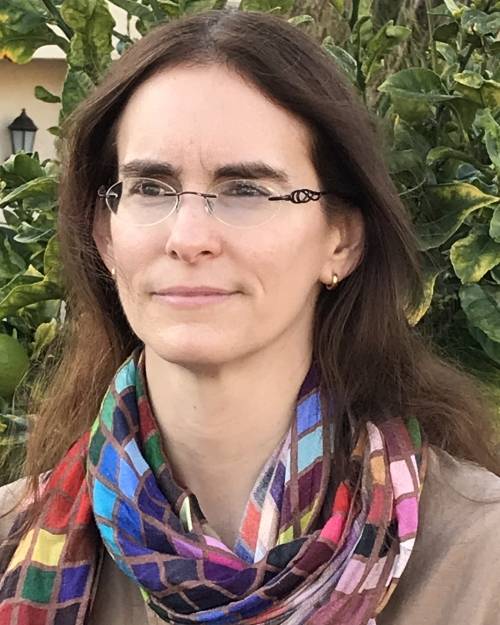 Meet Dr. Susy Kohout, who will tell us about her research as it applies to biology
and neuroscience. We will also discuss how the cross-cutting concepts in the new science
standards manifest in her work.
Meet Dr. Susy Kohout, who will tell us about her research as it applies to biology
and neuroscience. We will also discuss how the cross-cutting concepts in the new science
standards manifest in her work.
We will also hear from Dr. Robert Carson about his research. ProfessorCarsonstudies the History, Philosophy, Sociology, and Psychology of Education, and of the
various academic disciplines taught in schools. If the brain is the physiological
substrate of human thought, then the mind is the personification of its many functions.
Together, educators work amidst the capabilities and the limitations of both.
Dr. Carson asks, “How did humans acquire the ability to create symbols, invest them with meaning, and
cultivate the human mind through the development of language, mathematics, science,
technology, literature, art, and our various intellectual disciplines and cultural
systems? What can we learn from these kinds of ‘foundational’ questions that might enhance our ability to teach? Let’s find out!”
And we will talk about other aspects of neuroscience and the brain, like neuromyths
and neurodiversity in honor of Brain Awareness week.
Proficiency-based Education using NSF research - July 2022
Read about our summer workshop that used research funded by the National Science Foundation to demonstrate Proficiency-based Education.
Diving Into Data: Saturday, Feb. 26, 2022
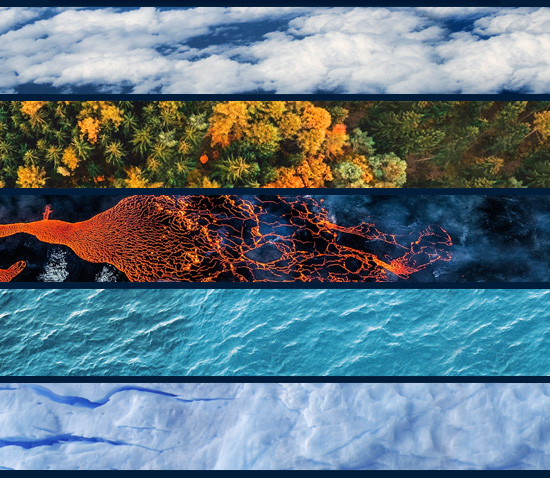 Join the MSU Science Math Resource Center for a free online workshop thatintroduces participants to various data sources that can be utilized in the classroom.
Join the MSU Science Math Resource Center for a free online workshop thatintroduces participants to various data sources that can be utilized in the classroom.
Teachers will walk away with lessons to implement, resources for finding more lessons, and ideas for incorporating authentic data from current Montana research projects. The workshop will include breakout sessions and resources for teachers of grades K-5, 6-8, and 9-12. Participants entered into a giveaway of supplies for gathering data with students.
The workshop is online from 8:30 a.m. to noon. It is free to attend, but pre-registration is required. Attendance is capped at30 people. Teachers can earn OPI renewal units for participating.
The workshop is supported by the Montana NSF EPSCoR program under its Sensing for Science outreach umbrella.
This workshop has already passed but if you would like information or resources, contact [email protected]
Montana STEM Summits 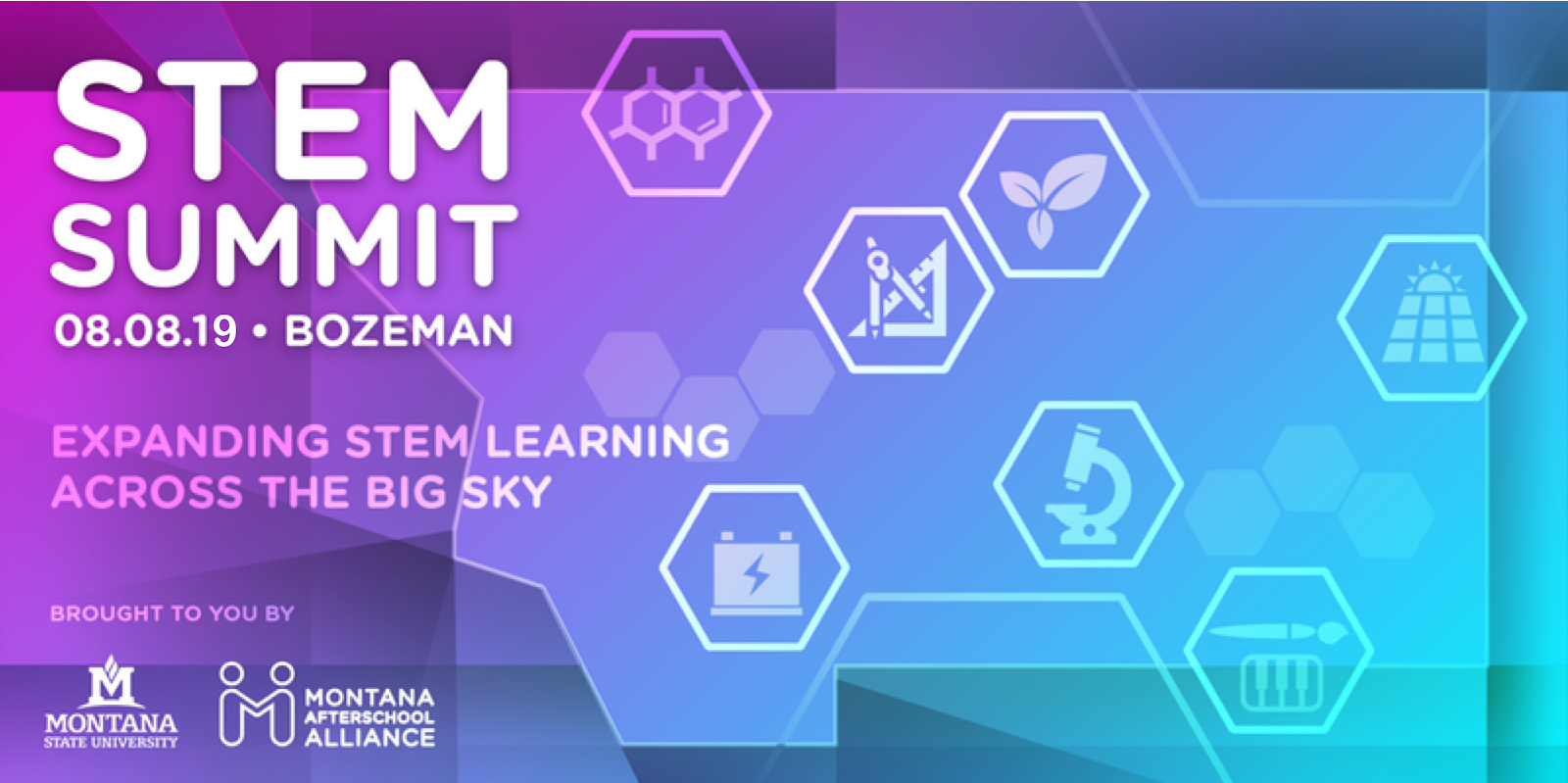
The first Montana STEM Summit was held at Montana State University in 2017.
Learn about this event and key findings from the 2017, 2019, 2022 and 2023 Summits.
Educator Workshop: Citizen Science and the Lewis & Clark Trail, June 2019
When Meriwether Lewis and William Clark journeyed 8,229 miles across America in the early 1800s, they used laborious and time-consuming processes to record their observations and map the region. Fast-forward 200+ years, and we now carry sophisticated tools for data collection right in our pockets!
This workshop was for current Montana educators working with youth in grades 5-12 in a classroom or out-of-school enenvironment. You can learn more about the NASA AEROKATS and ROVER Education Network and Montana NSF EPSCoR, sponsors of the workshop.
See all resources from this workshop, including how to integrate STEM with the Arts and the impact of the Lewis & Clark expedition on Indigenous People
Workshop on Engineering Design for K-5 Classrooms, August 15-16, 2018
Science Math Resource Center organized a Workshop on Engineering Design for K-5 Classrooms.
This was a wonderful hands-on learning opportunity for participants on the basics of engineering design and how to incorporate engineering activities into the elementary classroom.
Participation includes 12 OPI renewal units, travel expense reimbursement, MSU dorm
room equivalent housing costs, and per diem.
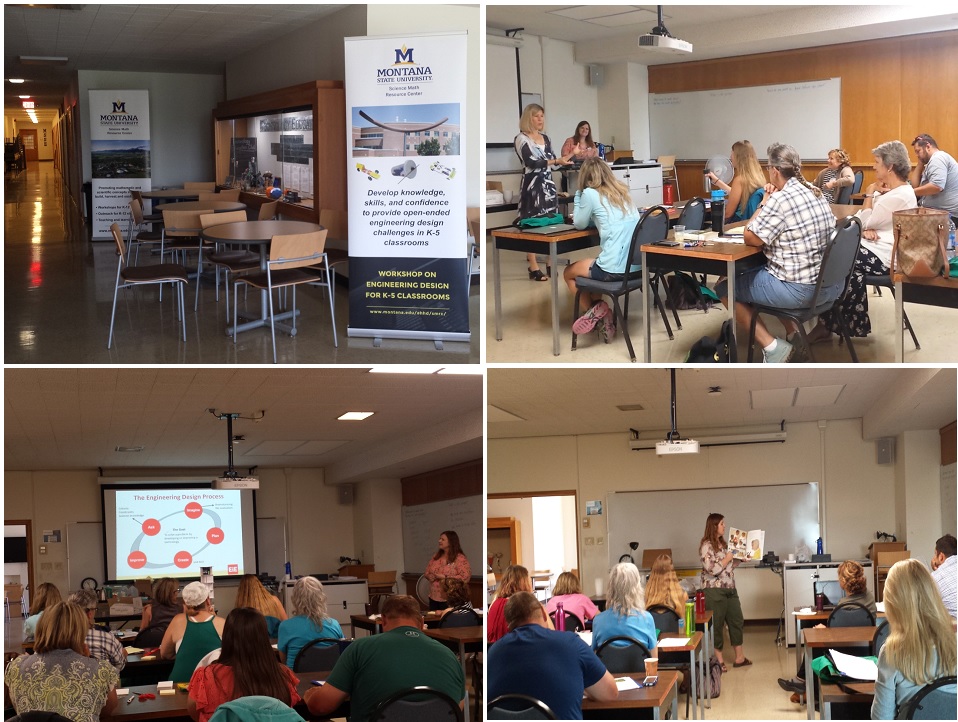
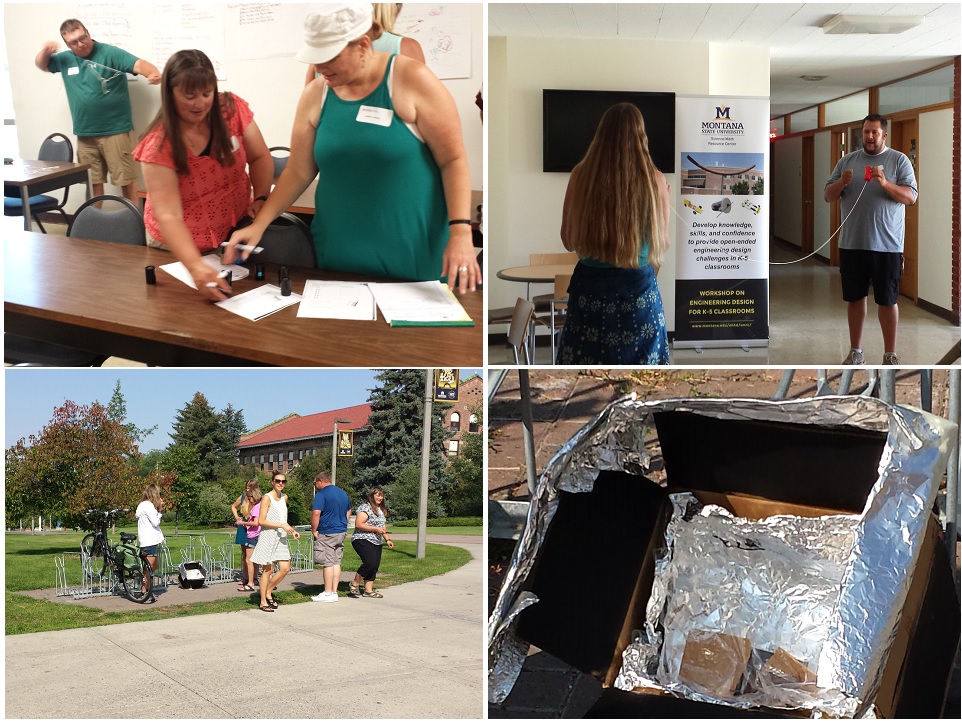
Science of School Gardens Workshop, July 18-19, 2018
Science Math Resource Center organized a Summer Workshop for K– 8 educators about the Science of School Gardens in collaboration with Gallatin Valley Farm to School and Farm to School of Park County.
This was a wonderful hands-on learning opportunity for teachers on the basics of planning, planting and maintaining school gardens, greenhouses and aquaponics systems.
The 1st day of the workshop was held in Bozeman and the 2nd day in Livingston. Both days were with demonstration lessons and activities. 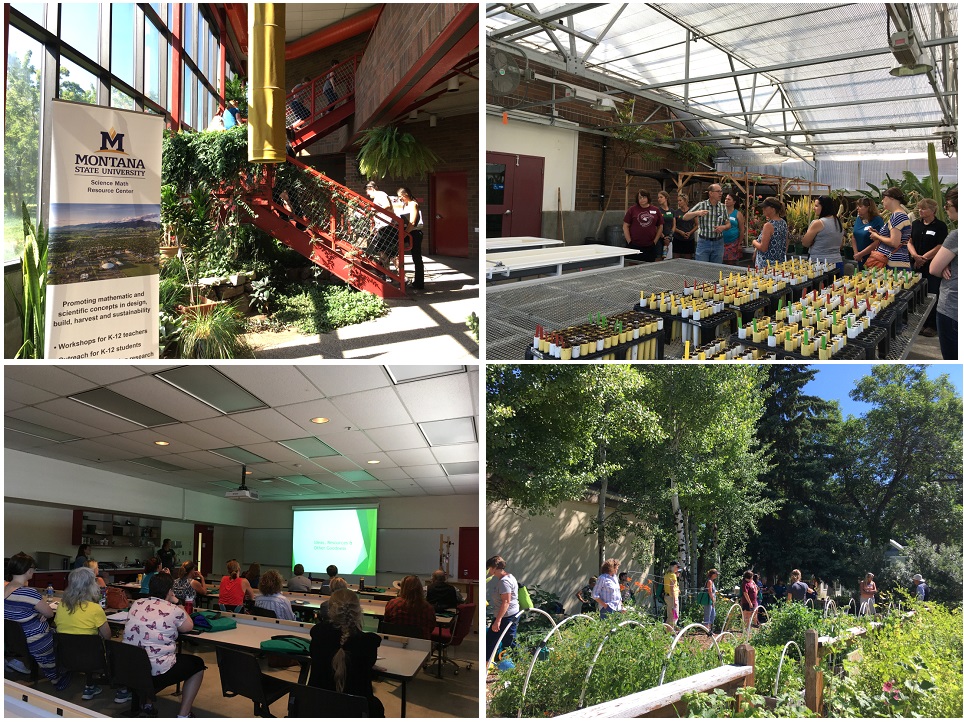
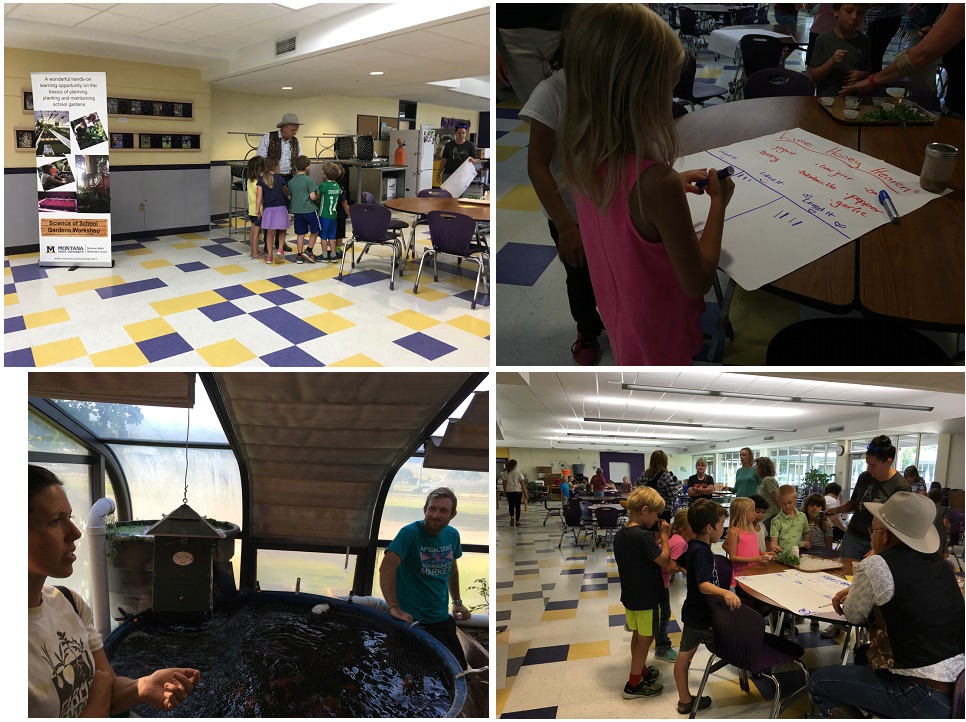
Science of School Gardens Workshop, August 2-3, 2017
Science Math Resource Center at Montana State University organized a Summer Workshop for K– 8 educators about the Science of School Gardens.
This was a wonderful hands-on learning opportunity for participants on the basics of plant growth and gardening. The Participants have learned how to establish a school garden and incorporate math and scientific concepts in design, build, harvest and sustainability.
The two-day workshop enrolled 20 in-service teachers, and runs the morning of Wednesday August 2nd through afternoon on Thursday August 3rd. Participation includes 12 OPI renewal units, travel expense reimbursement, dorm room or equivalent housing costs, and per diem.
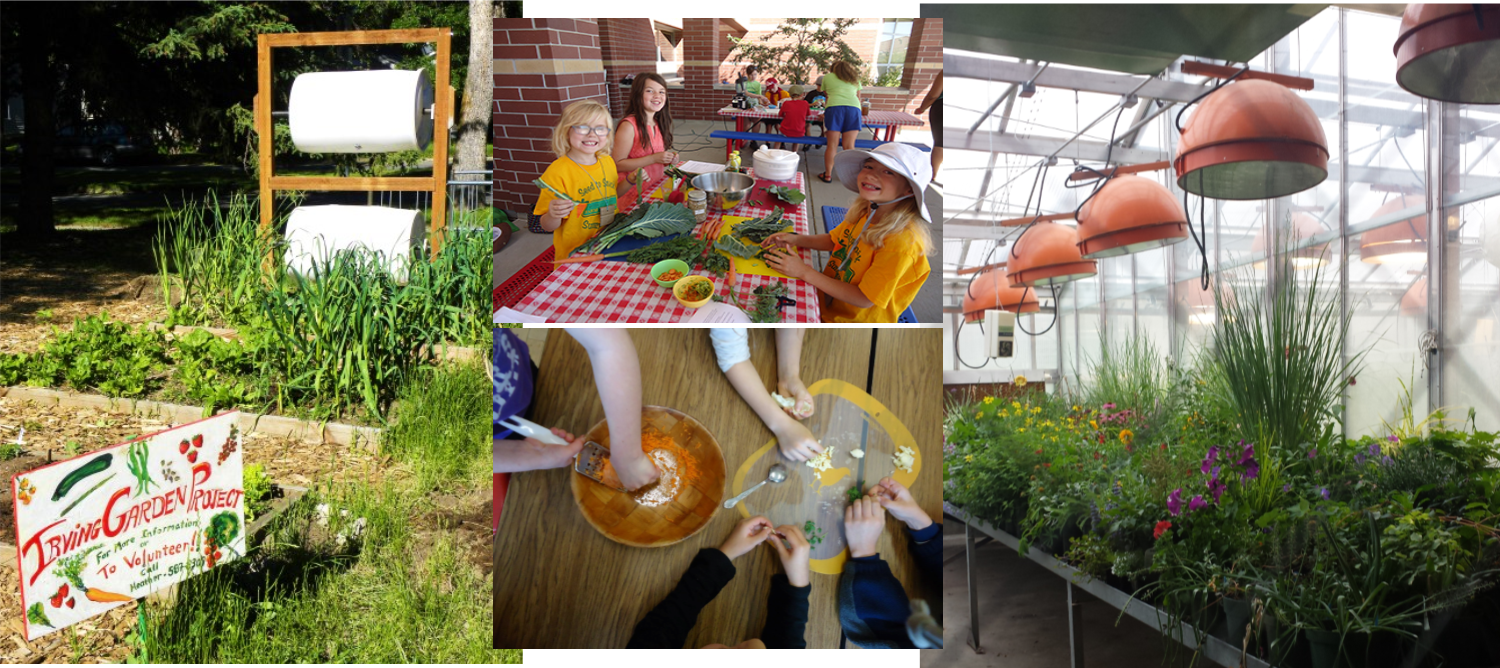
August 1-3, 2016 "Teaching Engineering" Workshop
The MSU Science Math Resource Center hosted a summer “teaching engineering” workshop in Bozeman for teachers of grades K-8. The workshop was led by an engineering professor and teachers who participated in developing the curriculum and in revising it based on their experiences implementing it in their classrooms. The workshop immersed participants in NGSS- and CCSS-aligned engineering activities for grades K-8, taught the engineering behind the activities, and made curriculum connections to science, mathematics, art, and English Language Arts. Most of the engineering activities used commonly-available classroom materials, making this an affordable entrée into engineering. The workshop leaders shared examples of children’s work on these activities from their classrooms.

The curriculum focused on physical science and engineering, and the materials can be integrated with nearly any subject in the elementary grades. Middle school teachers interested in exploring ways of integrating engineering across subject areas will also find the curriculum relevant. Break-out sessions on the third day allowed participants to focus on early elementary or late elementary/middle school implementations. The workshop used engineering activities grounded in science concepts of force & motion and energy that integrate mathematics, English Language Arts, and art (for example, Wind-ups http://www.citytechnology.org/sara-and-lolas-wind; Pop-ups http://www.citytechnology.org/unit/pop-ups; and Invent-a-Wheel http://www.citytechnology.org/invent-wheel).
Science Math Resource Center Receives Award from MSTA
October 17, 2013
On October 17th, the Science Math Resource Center was happy to be honored by the Montana Science Teachers' Association at the MEA conference held in Belgrade, Montana. The Science Math Resource Center received an award from MSTA for "Superior Achievement in Science Education for 2013" for qualities of innovation and creative teaching, content expertise, enthusiasm and leadership, which contribute to excellence in promoting science education in Montana.
Science Math Resource Center: Making Science Fun!
September 21, 2013
Annie Mollock, Jesse Hunter, Kiley Eversole, and Irene Grimberg represented the Science Math Resource Center and the Montana Science Olympiad at the Montana Science and Engineering Festival held on September 21 at Bobcat Stadium. In an effort to publicize the Montana Science Olympiad to the community and engage the public in science and engineering we had hands-on activities and flyers that explain what the Center does for STEM education in Montana, and volunteer opportunities offered by the Montana Science Olympiad. 235 people visited our booth to play with magnets, decipher optical illusions, and explore the intricacies of mass and inertia. The activities were very well received, and adults and kids both had fun. Teachers of the area requested resources for their classrooms, and many MSU students pledged to volunteer for the Montana Science Olympiad, on November 26 at our very own MSU campus!
In addition to the Montana Science Olympiad booth the Science Math Resource Center along with faculty of Plant Science and Plant pathology, Land Resources and Environmental Science, College of Agriculture, and MSU-Extension had a booth to disseminate their research on integrated pest-management in crops. Together, we have a number of USDA grants to investigate multitrophic pest interactions and cropping system management. The Science Math Resource Center is in charge of the educational component. At this booth sheep and microscopes greeted visitors and even children played virus and cells in a virus-tag game!!
Family Fun, Food, and Learning Night: Better than Christmas!!
April 22, 2013
 There is vast research supporting the idea that reading and parental engagement in
school activities are critical factors to facilitate students' learning in ALL content
areas. Moreover, reading or being read to during the summer months is very important
to enhance or retain students' literacy level. Any reading material, and reading in
any way -picture or text based books, and doing hands-on activities- is beneficial.
The important thing is that students pick their books!
There is vast research supporting the idea that reading and parental engagement in
school activities are critical factors to facilitate students' learning in ALL content
areas. Moreover, reading or being read to during the summer months is very important
to enhance or retain students' literacy level. Any reading material, and reading in
any way -picture or text based books, and doing hands-on activities- is beneficial.
The important thing is that students pick their books!
The Science Math Resource Center in partnership with Hopa Mountain organized a powerful and transformative educator training to engage school students and their family in a Family Fun and Learning Night program. Dr. Bonnie Sachatello-Sawyer, Hopa Mountain director, led the training focusing on: how to implement this family learning program in a school, storytelling and reading aloud-techniques, exploratory science-activities, and give-away books to children. Bonnie modeled a rock sorting activity inspired by the book "If You Find a Rock" by Peggy Christian and Barbara Hirsh Lember. Then teachers examined different ways to use this activity in their classroom, not only to address science content but also to reinforce reading comprehension and explore mathematical concepts.
A picture astronomy book "There's No Place Like Space" by Tish Rabe and Aristides Ruiz was introduced along with night observations and recording of moon phases. Ideas to extend this hands on-reading aloud activities to parent conference settings or school family nights, such as Astronomy Night and Science Night, were also discussed. The teachers received lesson plan packages for the rock and astronomy programs with descriptions of activities for students, parents and students, tips for parents for reading aloud and literacy activities at home, a book list. The training concluded with teachers picking books for their classrooms and their students including: rock books; books about the moon, night sky, and Sun; books about Spring, about dogs, and many more!!
If you want to receive the activity packages and /or the books please visit the Hopa Mountain website, or e-mail Bonnie: [email protected]. If you need assistant and ideas to implement these activities in your classroom, or during parent conferences or family nights please contact the Big Sky Science Partnership teachers: Tanya Anderson (Hardin Intermediate), Devon Flamm (Hardin Intermediate), Reba Strom (Hardin Elementary), Dorcella Plain Bull (Pretty Eagle), and Michelle Jefferson (Pretty Eagle).
2013 Montana STEM Educator Needs Assessment Survey Report
December 18, 2013
During the Fall of 2013, we conducted a needs assessment survey of K--12 science, technology, engineering, and mathematics (STEM) educators in Montana. The primary purpose of the survey was to identify the educational needs of K--12 formal and informal STEM educators and collect information about schools or organizations that could be relevant to the implementation of teacher enhancement programs. The survey was completed by 213 STEM educators from 42 out of 56 counties in Montana.
E-Mentoring for Students Success (eMSS)
eMSS is an online mentoring program for science and mathematics teachers. eMSS started as a partnership comprised of NSTA, the Science Math Resource Center and the Burns Telecommunications Center at Montana State University, the NSF Center for Learning and Teaching in the West, the New Teacher Center at the University of California, Santa Cruz, and a number of school districts in Montana and California. The primary goal of eMSS is to develop a national online, content-rich, mentoring system to improve the skills of, and provide support for novice middle and high school science teachers. eMSS develops an online network of mentor teachers, science and math educators, and scientists and mathematicians who support beginning teachers in their efforts to provide high quality instruction to their students. Joining California and Montana, eMSS gradually incorporated other states reaching up to 16 states in the nation. eMSS was funded by National Science Foundation and currently is self-supported by user districts and administrated by the New Teacher Center.
Integrating Environmental Education Throughout the Curriculum (IEETC) - Concluded
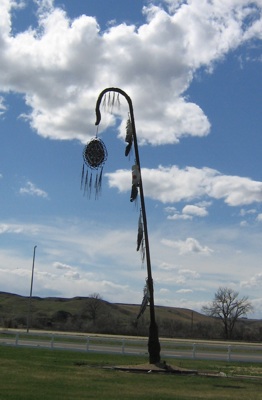 IEETC is a professional development program focused on increasing G2-8 teachers' abilities
to integrate local environmental and indigenous topics into science content teaching.
The program is delivered in two tribal communities, Salish Kootenai and Crow, and
is centered on STEM topics. IEETC combines tribal members' presentations and panel
discussions of local environmental issues, on-site workshops about inquiry-based activities,
and online discussions allowing teachers to share teaching approaches and lesson ideas.
The training is provided in collaboration with faculty of Montana State University,
Little Big Horn College, and Salish Kootenai College. Teachers that participate in
IEETC learn about the environmental issues facing their students' communities from
scientific and tribal-historical perspectives. IEETC impacts about 20 teachers and
400 students. IEETC is funded by the Montana Office of the Commissioner of Higher
Education, Educational Talent Search program.
IEETC is a professional development program focused on increasing G2-8 teachers' abilities
to integrate local environmental and indigenous topics into science content teaching.
The program is delivered in two tribal communities, Salish Kootenai and Crow, and
is centered on STEM topics. IEETC combines tribal members' presentations and panel
discussions of local environmental issues, on-site workshops about inquiry-based activities,
and online discussions allowing teachers to share teaching approaches and lesson ideas.
The training is provided in collaboration with faculty of Montana State University,
Little Big Horn College, and Salish Kootenai College. Teachers that participate in
IEETC learn about the environmental issues facing their students' communities from
scientific and tribal-historical perspectives. IEETC impacts about 20 teachers and
400 students. IEETC is funded by the Montana Office of the Commissioner of Higher
Education, Educational Talent Search program.
Big Sky Science Partnership (BSSP) - Concluded
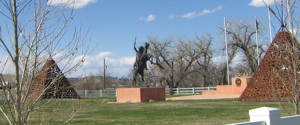 BSSP focuses on the design and implementation of science teachers' professional development
in American Indian reservations in Montana. BSSP is comprised of partners from five
tribal communities, three institutions of higher education, and forty-five K-8 schools
on and around the Flathead, Northern Cheyenne and Crow Reservations. The goals of
this multi-year project are: 1) to increase teachers' science content knowledge, 2)
to improve science instructional practices and culturally congruent teaching, 3) to
improve students' science achievement, and 4) to form a cadre of teacher leaders that
will assist other teachers in their own community. BSSP professional development is
implemented in three content areas: Earth Science; Astronomy and Weather and Climate;
and Physics. All instruction in these areas are framed by culturally responsive teaching
approaches. The professional development is delivered face-to-face and online, such
that teachers attend monthly face-to-face workshops and participate in online semester-long
courses that deepen the face-to-face topics and facilitate the formation of a teacher's
learning community; attend a two-week summer institute focused on the integration
of science, pedagogy, and culture; and participate in a summer cultural camp experiencing
tribal American Indian culture. Being in its last year, BSSP impacted about 100 teachers
plus 15 American Indian pre-service teachers, and 2000 students in grades K-8. Approximately
60% of these students are American Indians living on Montana's American Indian reservations.
BSSP is funded by the Mathematics and Science Partnership program of the National
Science Foundation. More information
BSSP focuses on the design and implementation of science teachers' professional development
in American Indian reservations in Montana. BSSP is comprised of partners from five
tribal communities, three institutions of higher education, and forty-five K-8 schools
on and around the Flathead, Northern Cheyenne and Crow Reservations. The goals of
this multi-year project are: 1) to increase teachers' science content knowledge, 2)
to improve science instructional practices and culturally congruent teaching, 3) to
improve students' science achievement, and 4) to form a cadre of teacher leaders that
will assist other teachers in their own community. BSSP professional development is
implemented in three content areas: Earth Science; Astronomy and Weather and Climate;
and Physics. All instruction in these areas are framed by culturally responsive teaching
approaches. The professional development is delivered face-to-face and online, such
that teachers attend monthly face-to-face workshops and participate in online semester-long
courses that deepen the face-to-face topics and facilitate the formation of a teacher's
learning community; attend a two-week summer institute focused on the integration
of science, pedagogy, and culture; and participate in a summer cultural camp experiencing
tribal American Indian culture. Being in its last year, BSSP impacted about 100 teachers
plus 15 American Indian pre-service teachers, and 2000 students in grades K-8. Approximately
60% of these students are American Indians living on Montana's American Indian reservations.
BSSP is funded by the Mathematics and Science Partnership program of the National
Science Foundation. More information
Science Inquiry Learning in the Classroom (SILC) - Concluded
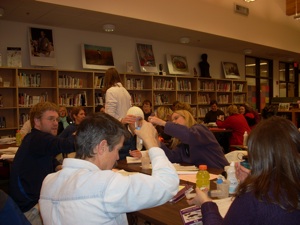 SILC was a professional development program for K-6 teachers of urban and rural school
districts in Montana, aiming to increase teachers' science content knowledge, to promote
inquiry-based teaching, and to facilitate classroom implementation of the resources
identified by Montana Office of Public Instruction Indian Education For All (IEFA)
program. In partnership with the Montana Learning Center, Montana State University,
Montana Regional Education Services Area IV, and Helena and Bozeman school districts,
SILC delivered a blended model professional development including: face-to-face monthly
inquiry academies, teachers' webinars, online coursework, scientists classroom virtual
visits, and instructional coaching. The inquiry academies, webinars, and online coursework
addressed the Montana Standards for Life Science and Physical Science, and inquiry-based
pedagogical practices. Instructional coaching involved working on an individual basis
with each teacher at least once a month encouraging the use of age-appropriate content
and inquiry. Classroom virtual visits facilitated scientist and student dialogs centered
on the concept of energy. SILC impacted 60 teachers and approximately 1300 K-6 students.
SILC was funded by the Mathematics and Science Partnership program of the Montana
Office of Public Instruction.
SILC was a professional development program for K-6 teachers of urban and rural school
districts in Montana, aiming to increase teachers' science content knowledge, to promote
inquiry-based teaching, and to facilitate classroom implementation of the resources
identified by Montana Office of Public Instruction Indian Education For All (IEFA)
program. In partnership with the Montana Learning Center, Montana State University,
Montana Regional Education Services Area IV, and Helena and Bozeman school districts,
SILC delivered a blended model professional development including: face-to-face monthly
inquiry academies, teachers' webinars, online coursework, scientists classroom virtual
visits, and instructional coaching. The inquiry academies, webinars, and online coursework
addressed the Montana Standards for Life Science and Physical Science, and inquiry-based
pedagogical practices. Instructional coaching involved working on an individual basis
with each teacher at least once a month encouraging the use of age-appropriate content
and inquiry. Classroom virtual visits facilitated scientist and student dialogs centered
on the concept of energy. SILC impacted 60 teachers and approximately 1300 K-6 students.
SILC was funded by the Mathematics and Science Partnership program of the Montana
Office of Public Instruction.Center for Learning and Teaching in the West (CLTW) - Concluded
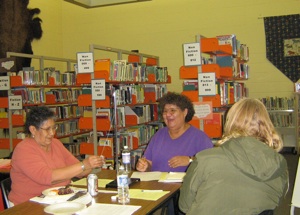 The CLTW is a consortium of five universities: Portland State University, Montana
State University, the University of Montana, Colorado State University and the University
of Northern Colorado, in partnership with Ft. Belknap College (MT), other community
and tribal colleges, the Portland Public Schools, and 68 rural and reservation schools
in Montana and Colorado. This partnership arose from shared interests on improving
teacher preparation; delivering high quality professional development; providing advanced
degree programs in education; developing science and mathematics education research;
exploring innovative delivery systems; and documenting experiences in systemic collaboration.
Sixty-two graduate students (51 doctoral and 11 master students) completed their studies
in the frame of CLTW. Research work supported by CLTW includes studies on: K-12 student
achievement differences; cultural issues affecting student performance and participation;
professional development to promote teacher knowledge, and community and capacity
building; distance education; and access to and success in higher education. CLTW
was funded by the National Science Foundation.
The CLTW is a consortium of five universities: Portland State University, Montana
State University, the University of Montana, Colorado State University and the University
of Northern Colorado, in partnership with Ft. Belknap College (MT), other community
and tribal colleges, the Portland Public Schools, and 68 rural and reservation schools
in Montana and Colorado. This partnership arose from shared interests on improving
teacher preparation; delivering high quality professional development; providing advanced
degree programs in education; developing science and mathematics education research;
exploring innovative delivery systems; and documenting experiences in systemic collaboration.
Sixty-two graduate students (51 doctoral and 11 master students) completed their studies
in the frame of CLTW. Research work supported by CLTW includes studies on: K-12 student
achievement differences; cultural issues affecting student performance and participation;
professional development to promote teacher knowledge, and community and capacity
building; distance education; and access to and success in higher education. CLTW
was funded by the National Science Foundation.Systemic Teacher Education Preparation (STEP) - Concluded
STEP is a project for the improvement of STEM education of pre-service teachers in the state of Montana. Based at MSU, the STEP project has formed a collaborative partnership between the university system campuses, Montana's seven tribal colleges, and numerous K-12 field sites throughout the state. STEP redesigned mathematics, science, and methods courses for pre-service teachers, using model field sites as "living laboratories" for research on effective pre-service training. As a result of these initiatives, the number of minority students preparing to teach in STEM fields significantly increased, and a distance-based mentoring system for new teachers in a rural state was piloted. STEP was funded by the National Science Foundation Division of Undergraduate Education program.

